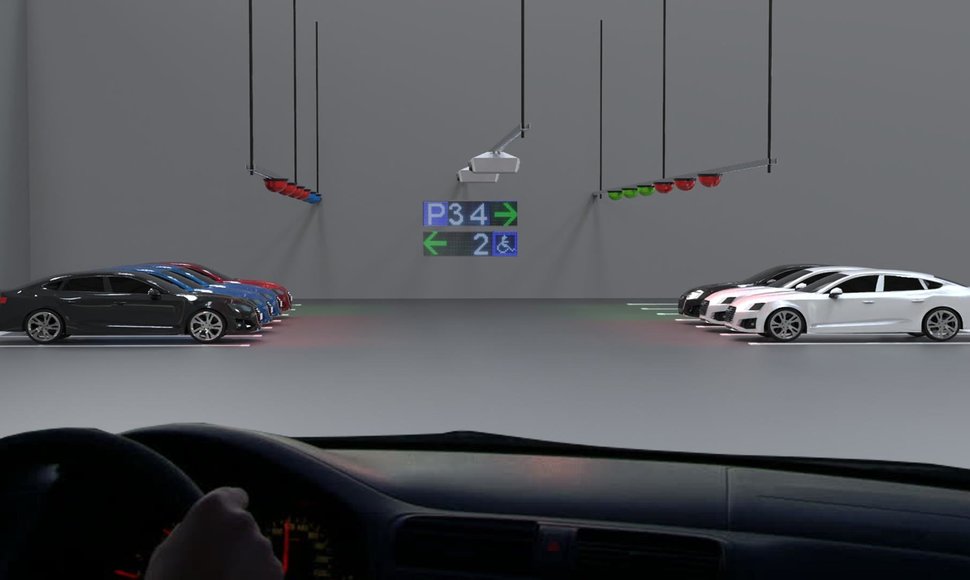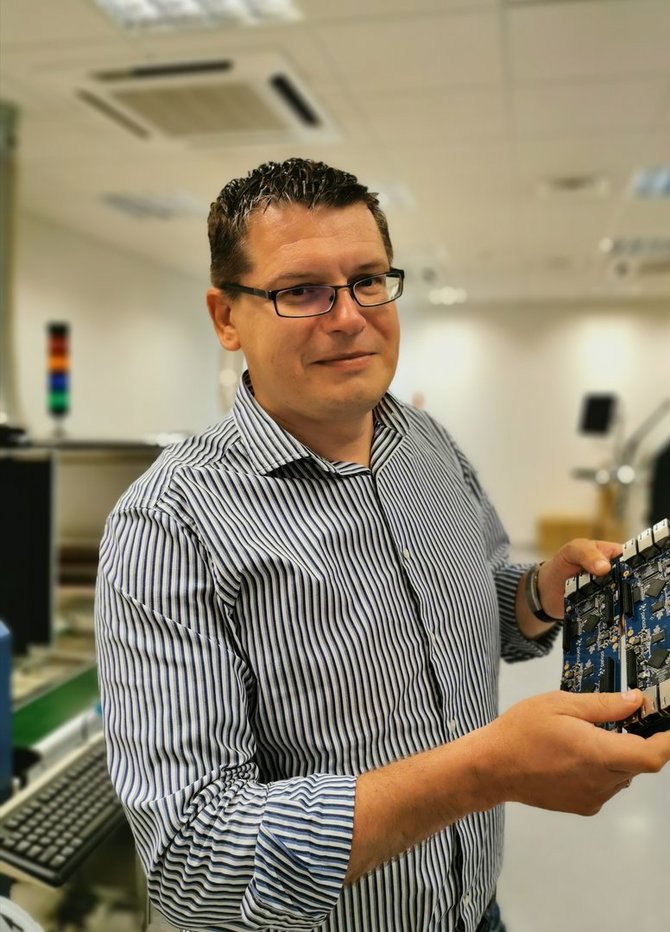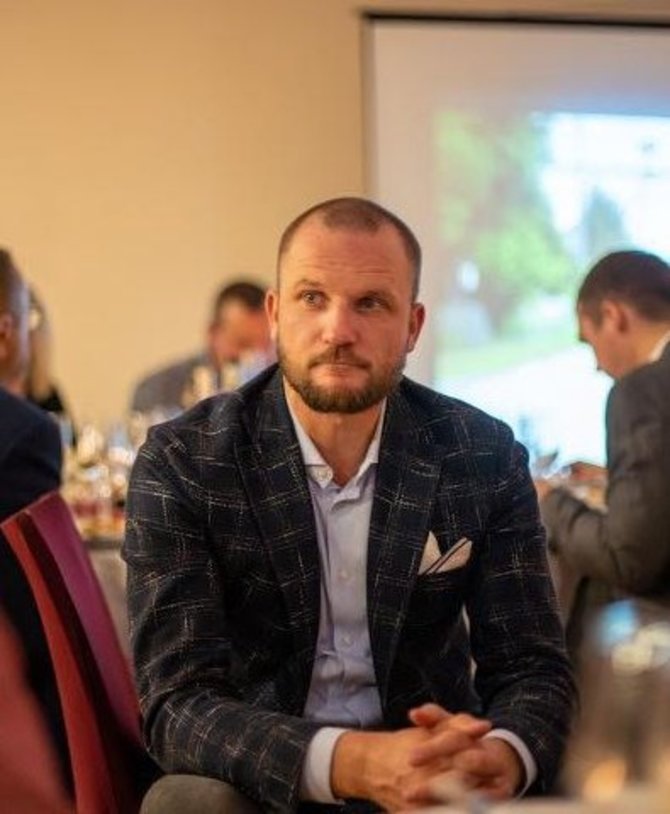Having started from selling security systems and their installation, today the Arevita business group is supplemented by one more daughter company – Parksol Technologies. It creates unique parking systems software which is based on artificial intelligence and big data analysis, and the solutions are applied for the parking management of multi-functional complex buildings such as business centres, hotels, apartment buildings, and shopping centres. Compared to usual methods, these solutions are markedly more convenient to use, helping avoid driver misuse and ensure better use of car parking space.
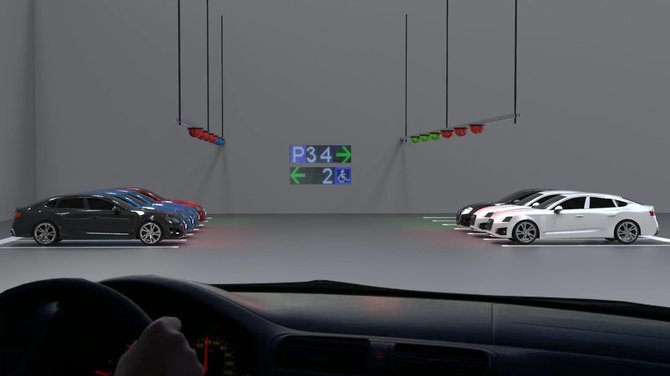
“A year ago, we discovered the start-up WellParko, whose image processing algorithm was relevant to our available solutions. We saw a vision of how we could elevate everything to a higher level, and so we purchased the start-up. We tweaked the solution over a long period of time and integrated our available system, but due to the implementation of other projects, we were constantly short on time to finish it.
“The world being gripped by the pandemic forced us to cancel several exhibitions and allowed focusing on developing the new solution. Currently, we have systems for both indoor parking lots, and in outdoor parking lots, a single camera can recognize more than 50 cars. Previously, the magnetic sensor recognized only one car,” Parksol Technologies head Arūnas Marma explains.
Ninety percent of the main company’s products are exported abroad, and over more than 12 years the company has been able to secure the trust of world famous parking solutions manufacturers and become a partner of such companies as HUB Parking Technologies (FAAC Group), and Cross and Amano.
Today, the monitoring of global trends allows the company to always be a step ahead and not fall behind in creating the most innovative solutions: “We can clearly see that in Europe and the rest of the world, smart cities are emerging more and more. Not only spacious parking lots are becoming more relevant, but also the integration of smart solutions, for example, allowing cars to quickly find free parking space via apps, generate less CO2 and no longer cause traffic jams,” said A. Marma as he presented the new solution idea.
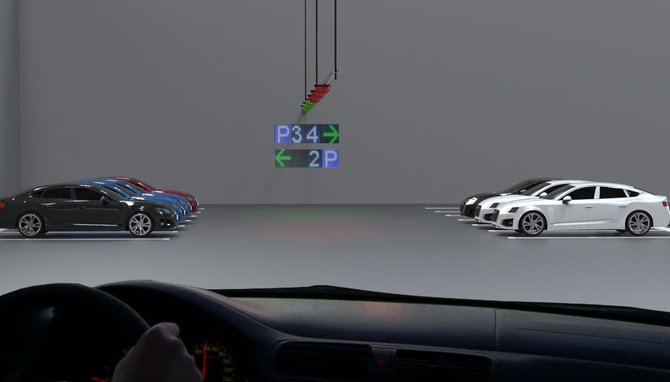
Despite the rapid spread of the smart city concept, some European countries have difficulty in adapting the advanced solutions, and an example of this is Germany. “Often we say that the larger the country or city, the more difficult it is to change its habits and move on to more advanced solutions. In Germany, you can find the so-called paper ticket systems in many parking lots, where you must purchase a ticket on entering, and have to pay in cash on exiting. Lithuania has definitely advanced in this regard,” A. Marma said, having been the chief technology officer in the main company Arevita.
A very similar situation can also be found in the Muslim world. While countries such as the United Arab Emirates, Saudi Arabia and Bahrain are technologically advanced, the newest car parking companion solutions with license plate reading technologies are not proliferating so quickly in the region. More trust is afforded more typical solutions – parking companion systems using sensors; specifically a system which displays how many free spaces there are, and on what floors they are located.
“Cooperation with Middle Eastern countries often becomes a challenge, and this is not only due to cultural differences. The license plates of those countries are comprised of numerous different elements and even the smallest detail can be decisive. This becomes difficult, because you have to recognize the license plates of different emirates, which can be almost identical. The system needs to photo at least 1,000 different license plates and thus be ‘taught,’” said Karolis Samušis, the head of the company group, which is highly experienced in working with countries in the Middle East.
However, he emphasises that despite the challenges that emerge, they have achieved excellent success in cooperating with Emirates countries.
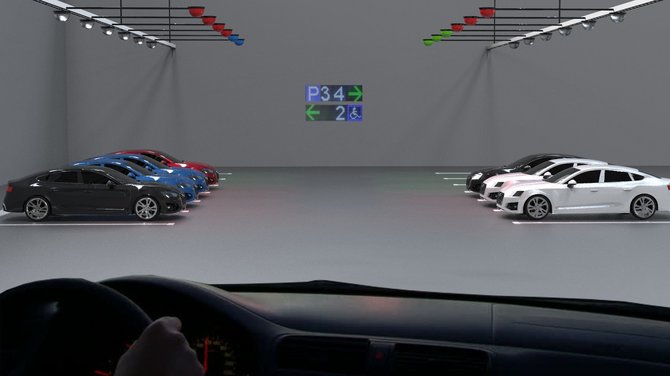
The situation is very different in Scandinavian countries. Seamless technology is especially popular, allowing to forget about parking. One’s car can be parked with little worry in paid zones and payment is performed, for example, through an application or through monthly billing.
“Cars become autonomous, cities expand, and become increasingly advanced. This is why we constantly strive to keep up with market trends and look to create innovative solutions. For rapidly growing cities, such smart solutions and coordination become especially important when seeking to control flows within the city, providing more security and optimise labour distribution,” A. Marma spoke of the inevitability of the new business.
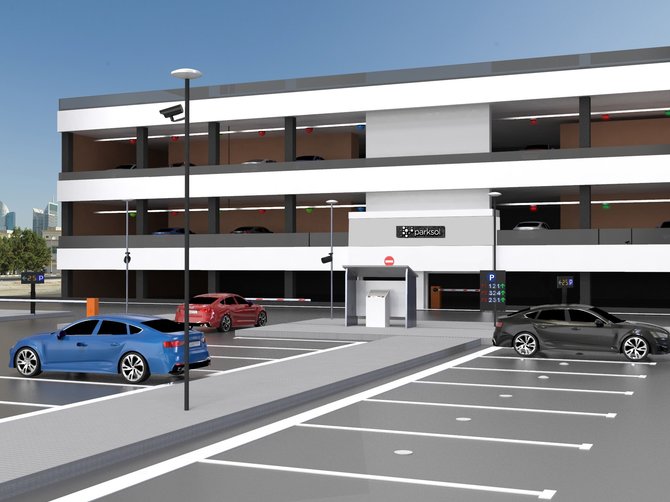
About the companies
UAB Arevita was founded in 1994 and from its inception, its operations have been developed by a professional and enthusiastic team of information technology and engineering specialists.
Today, the company group is comprised of five companies: Arevita, Arevita ir Ko, Spectra Baltic, Paradox Distribution Centre, Parksol Technologies.
Arevita holds strong positions in both the Lithuanian and Latvian markets, including wholesale and retail sales, offering the most advanced security and entry, fire safety and video monitoring systems. The company creates, plans and implements intelligent building management, engineering network and parking system solutions. The company is known around the world for its Parksol brand, which offers car parking guidance systems.
UAB Parksol Technologies is the newest company in the Arevita group. It creates and develops existing products and software for high tech markets.
Arevita group – engineering for easy living!
